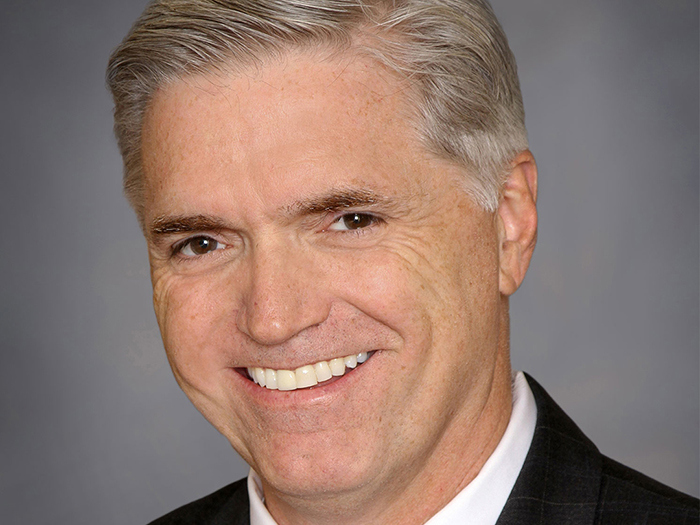Fear of Cyber
Brokers Balking at Cyber Insurance

Cyber crime, espionage and other “malicious cyber activity” cost the United States anywhere from $24 billion to $120 billion each year, according to a joint report by McAfee and the Center for Strategic and International Studies. That price tag comprises loss of intellectual property, sensitive business information and personally identifiable information (PII), reputational damage, and the costs of fixing security systems and recovering from data breaches.
As businesses become more dependent on technology, hackers likewise grow more sophisticated in their attacks, exposing businesses big and small to debilitating breaches.
Cyber crime, espionage and other “malicious cyber activity” cost the United States anywhere from $24 billion to $120 billion each year.
Entities as big as the New York Times, JPMorgan and Target have suffered hits, but research suggests that smaller, mom-and-pop shops make easy targets for cyber thieves looking to cash in on stolen debit and credit card numbers.
“It doesn’t matter what size company you are or what industry you are,” said Tim Francis, enterprise cyber lead, Travelers. “You should consider yourself a target.”
“From some things I’ve read,” said Marty Frappolli, senior director of knowledge resources at The Institutes, “the average cost of a data breach is more than $5 million, and the FBI is on record saying that most small businesses won’t survive a cyber attack.”
High-profile attacks have raised awareness about cyber liability, both among the business community and regulators. Forty-six states, the District of Columbia, Guam, Puerto Rico and the Virgin Islands all have laws requiring private or government entities to notify individuals of PII security breaches.
And yet the development of cyber insurance products and take-up by smaller and medium-sized businesses remains somewhat stagnant. Shouldn’t companies be scrambling to get coverage for one of their scariest business threats? Somewhere between the awareness of cyber risk and actually purchasing insurance against it, there’s a dangerous disconnect. Indications are that brokers may be the weak point.
Are Brokers Balking?
In internal research conducted by one major underwriter, a survey of both brokers and insurance buyers found that buyers expressed interest in purchasing cyber coverage, but hadn’t followed through mainly because their brokers hadn’t engaged with them or educated them about the topic.
Correspondingly, a much lower number of brokers claimed that their clients had a need, under-reporting the interest their customers had expressed. Taking the responses of both groups together, the underwriter concluded that a significant number of brokers may not fully understand cyber exposures or the insurance solutions on the market, and therefore are shirking the topic altogether.
A survey conducted by Marsh at their annual Communications, Media and Technology conference revealed similar findings. While 69 percent of attendees indicated increased concern about cyber security and liability over the past year, few had made moves to tighten their risk management.
Just 13 percent thought cyber risk was a matter for the risk management function, with most believing that the responsibility should fall to the IT department. Only about one-fifth of respondents said that their organization currently purchased cyber insurance, and only 11 percent of them felt confident that their coverage met their needs.
Clearly, there is a communication gap between buyers and the insurance community, and the onus falls on brokers to bridge it.
Emerging, Evolving Risk
Brokers could be side-stepping cyber coverage for several reasons. First and foremost, novelty and constant change.
“[One broker] felt that she couldn’t present the cyber quotes to her clients because she really couldn’t explain how the policies were different.”
– Nick Economidis, underwriter, Technology, Media and Business Services, Beazley
“Cyber risk, even though it’s been around for decades, is still an emerging, evolving risk,” Frappolli said. Exposures are ever-changing, and insurance solutions must change as rapidly to address them.
Lack of standardization in terminology also contributes to the confusion.
Nick Economidis, underwriter for Beazley’s Technology, Media and Business Services group, said he “met with one insurance broker who said that all the policy forms were different, and it was hard to understand how they compared to each other.
“She felt that she couldn’t present the cyber quotes to her clients because she really couldn’t explain how the policies were different,” he said.
Greg Gamble, director, Management and Professional Risk Group, Crystal & Co., said that while coverage is standard, policy wording varies among the 15 or so carriers that offer it.
“In that regard, it’s confusing because we have to make this understandable to our customer base and articulate it back to them in a way that makes sense.
“I would agree that there could be more standardization among carriers,” Gamble said, “but I don’t think that’s coming anytime soon because carriers have a lot of private ownership of their policies. They have people who’ve spent a tremendous amount of time developing those products, and they label agreements and write the policies their own way, and I don’t think they’re focused on coming together with industry standard categories of coverage.”
Tough Regulatory Environment
Varied state regulations also factor into non-uniform policies. Different legislatures have different notification standards, which affects what a company can stand to lose through notification costs alone.
“There are new laws coming through at the federal and state levels. European law is changing,” said Chris Keegan, senior vice president, Willis. “The ways in which technology is being used is changing, which can make those laws out of date very quickly.
“A lot of people are hoping for federal level simplification. We’ve seen Congress trying to put that in place for the last four or five years but they never seem to be able to get that legislation passed,” he said.
Notification laws can easily throw brokers for a loop.
Ken Goldstein, worldwide cybersecurity manager, Chubb Insurance, said it can be hard to keep track of who needs to be notified of a breach in which state. Some laws require attorneys general to be notified in states where customers were affected, and some require that credit monitoring agencies be alerted, depending on what type of information was disclosed.
“Different industry segments have different legal and regulatory requirements,” Goldstein said. “Identifying these exposures will ultimately help agents and brokers figure out how to protect clients from an insurance perspective.”
In-House Expertise
Not all brokers struggle with the changes, though. Larger brokerage houses and carriers have teams dedicated to researching, assessing and developing products responding to cyber risk. Brokers that have that in-house specialized expertise at their disposal have a much easier time finding the right solutions for their clients.
“There are only about five brokerage houses that have people with that level of expertise.”
– Chris Keegan, senior vice president, Willis
But indications are that the community of experts among brokers remains too small.
“There are only about five brokerage houses that have people with that level of expertise,” Keegan said. “For some of the other houses that don’t have that internal specialized expertise, they may struggle to get the consulting and policy advice that clients need.”
That explains why take-up is much lower among small and mid-sized businesses: They generally don’t have the same resources as large companies to work with the handful of big brokerages with in-house experts.
Some carriers also offer tools like breach cost calculators and risk assessment portals that allow brokers to estimate the financial impact of notification, data cleanup and business interruption. But those resources might not be enough. According to Travelers’ Francis, carriers could do more to work with and educate brokers on their coverages.
“One of the ways the industry can be working to address this issue is having carriers that not only deliver products, but are experts in the products they’re selling,” he said. Carriers should be helping brokers understand each account’s unique level of exposure and the insurance solutions available. “That collaboration right now is as important as, or more important than, the insurance product that is the end delivery,” he said.
“For smaller and mid-sized businesses, there really is great opportunity for the agents and brokers to fill that knowledge gap,” said Frappolli of The Institutes. “I would say that best-in-class agents are doing this for their clients. There’s always an opportunity for the broker to be not just somebody who sells you an insurance policy, but somebody who is your de facto risk manager.”
Solutions in Education
There are ways brokers can educate themselves on the evolving cyber environment, beyond reading journals and attending webinars. Conferences, for example, provide easy access to expert speakers, said Mark Greisiger, president of NetDiligence, which hosts twice-yearly educational forums on cyber risk.
“Both the speakers and attendees are the insurance companies, and their inside lawyers sometimes. We have retail and wholesale brokers attending. We have risk managers and CFOs who buy the insurance there, and various state and federal regulators. Many top security experts who can help customers safeguard their data come and speak as well,” he said.
“We also see a lot of smaller brokerage groups coming, because they need that technical expertise,” Greisiger said.
According to Willis’ Keegan, the industry can expect to see a lot of growth in take-up in cyber coverage among smaller clients in the next two to three years.
Brokers that can capitalize on that demand and independently stay up to speed on changing exposures will reap the rewards.










